The History of the NW200

The North West 200 is Ireland’s largest outdoor sporting event. The first event’s organisers could not have imagined how the event would grow over the years. In 1964, the North West 200 event was handed over to the Coleraine & District Motor Club Ltd who continues to run the event today.
What’s in a name?
Many people ask why the North West 200 is called the North West 200. The answer lies in the spawning of the event. History reveals that although the Club’s original choice of name for the race remained, their original choice of venue did not. The name has continued to generate some confusion amongst those who are unaware of the event’s origins. The inclusion of “200” simply indicates that the event was originally run over a distance of 200 miles. “North West”, reflects the original intended, location of the race, i.e. on a public roads course in the North West of Ireland.
The North West 200’s first organisers could not have imagined how the event would grow over the years. In 1964, the North West 200 event was handed over to the Coleraine & District Motor Club which continues to run the event today. In 2007, around two million people logged on from nearly every part of the world to watch what has become Ireland’s largest sporting event and one of the world’s fastest road races.
1930
1934
1939
1947
1953
1954
1955
1957
1958
1961
1964
1965
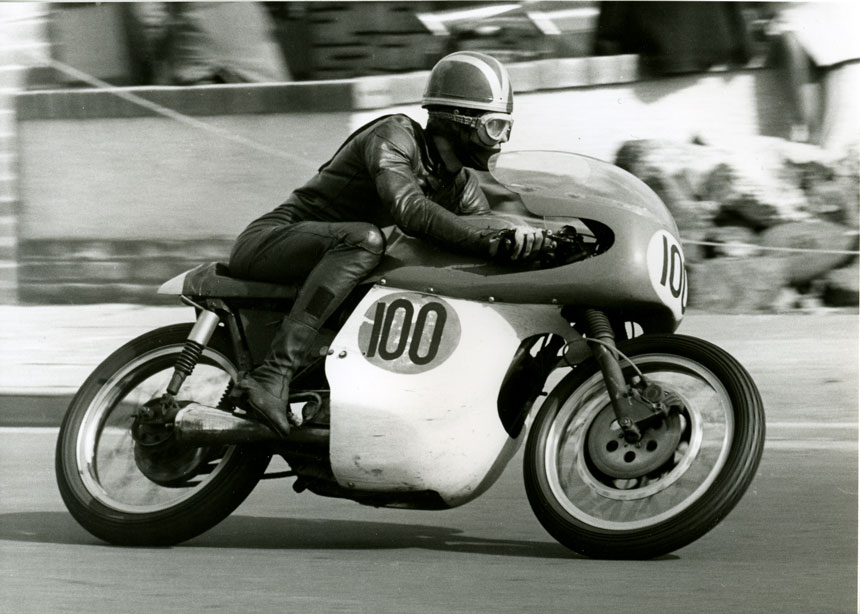 Peter Williams 500cc winner 1966
Peter Williams 500cc winner 19661965
1970
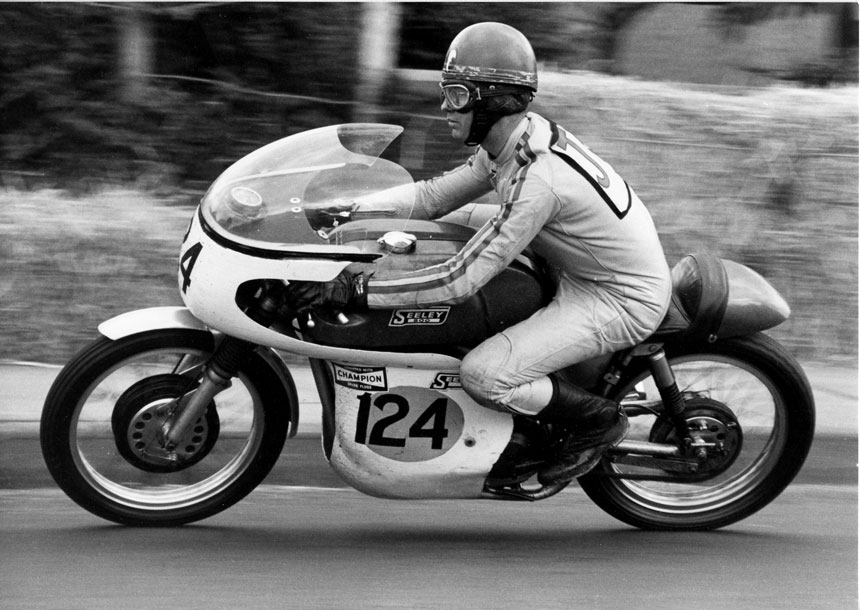 John Cooper 500cc winner 1970
John Cooper 500cc winner 19701971
1972
1974
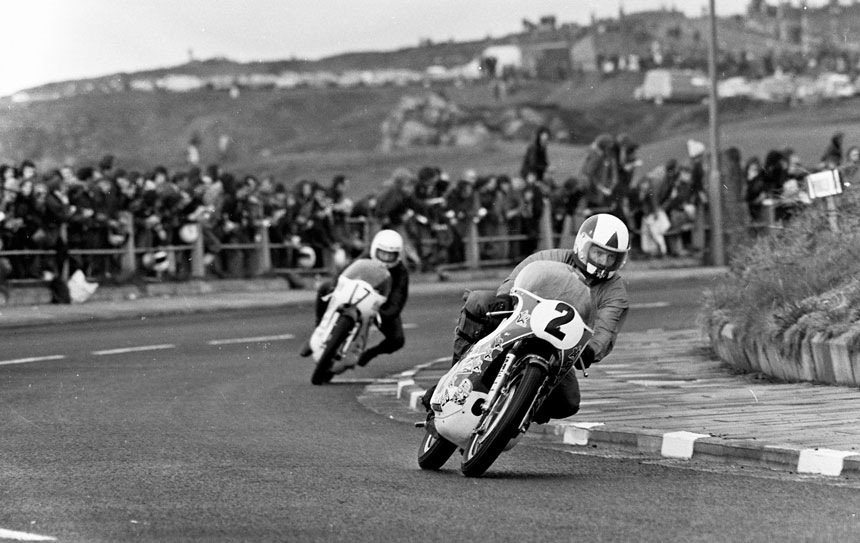 John Williams 350cc, 500cc and 750cc winner 1974
John Williams 350cc, 500cc and 750cc winner 19741977
1978
1979
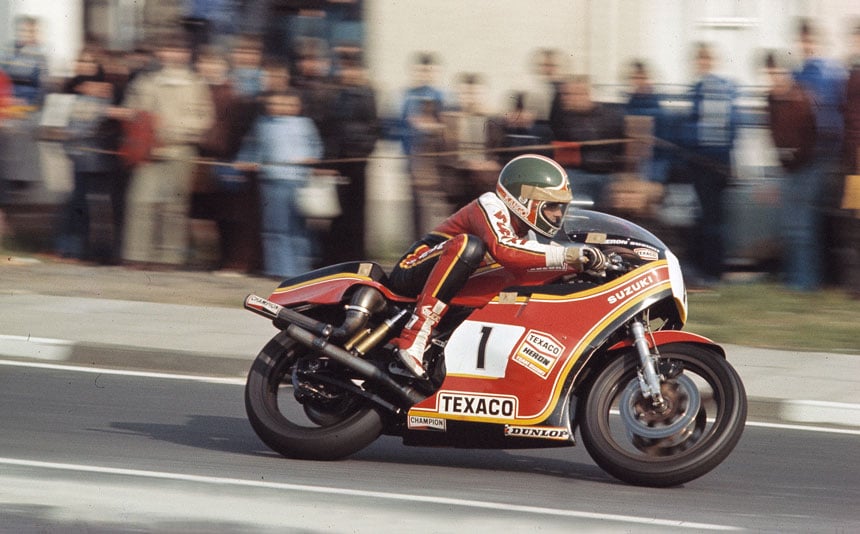 Tom Herron in action in 1979
Tom Herron in action in 19791983
1986
1987
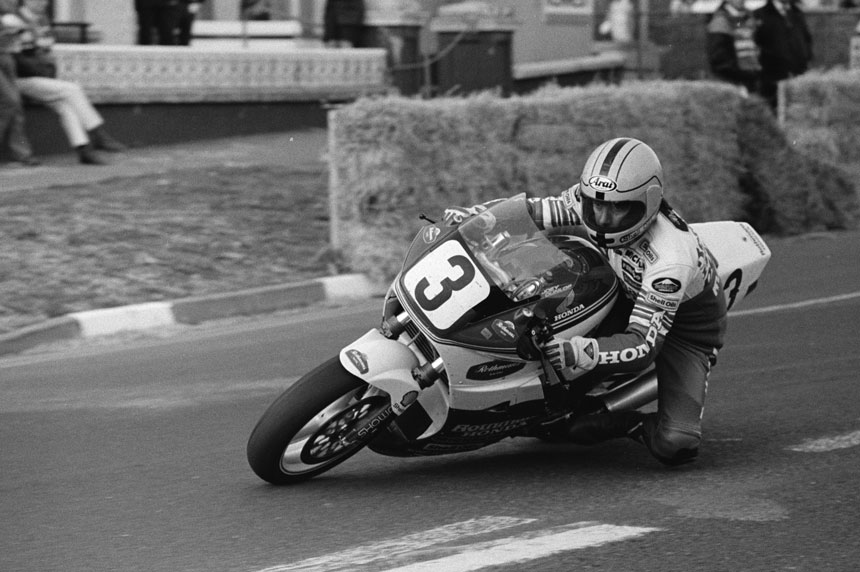 Joey Dunlop on course to his famous 1987 victories
Joey Dunlop on course to his famous 1987 victories1989
1990
1992
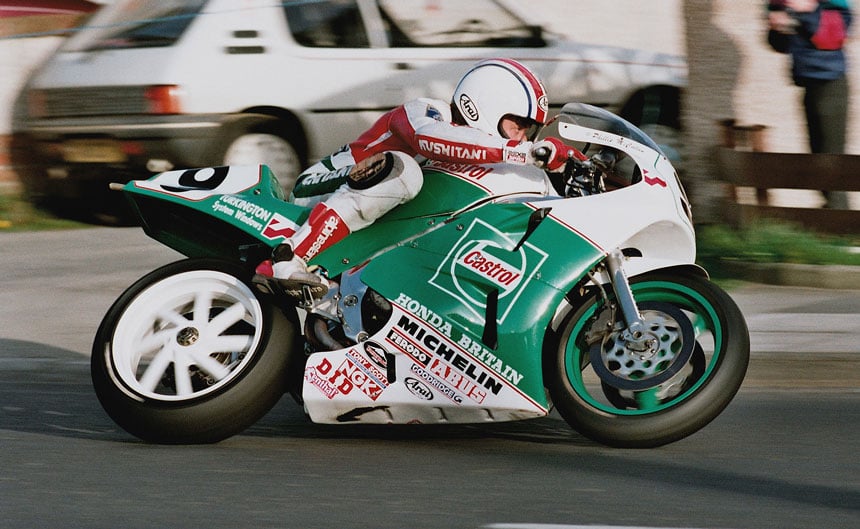 Philip McCallan wins an unprecedented five races
Philip McCallan wins an unprecedented five races1993
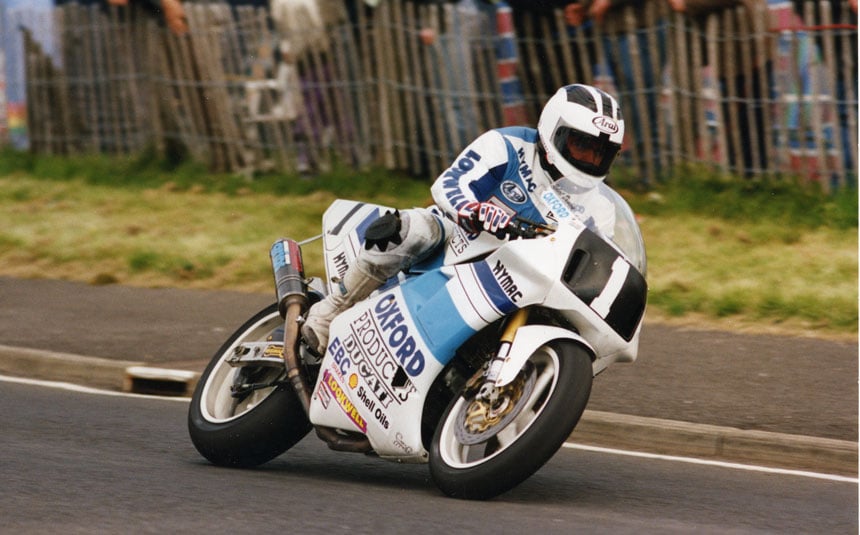 Robert Dunlop riding for Ducati in 1993
Robert Dunlop riding for Ducati in 19931994
1997
1999
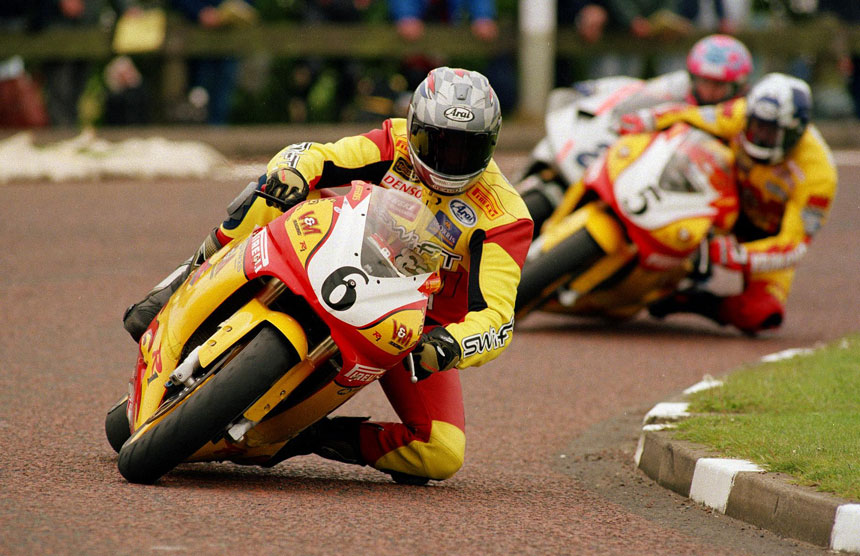 David Jefferies wins a treble in 1999
David Jefferies wins a treble in 19992000
2001
2002
2003
2004
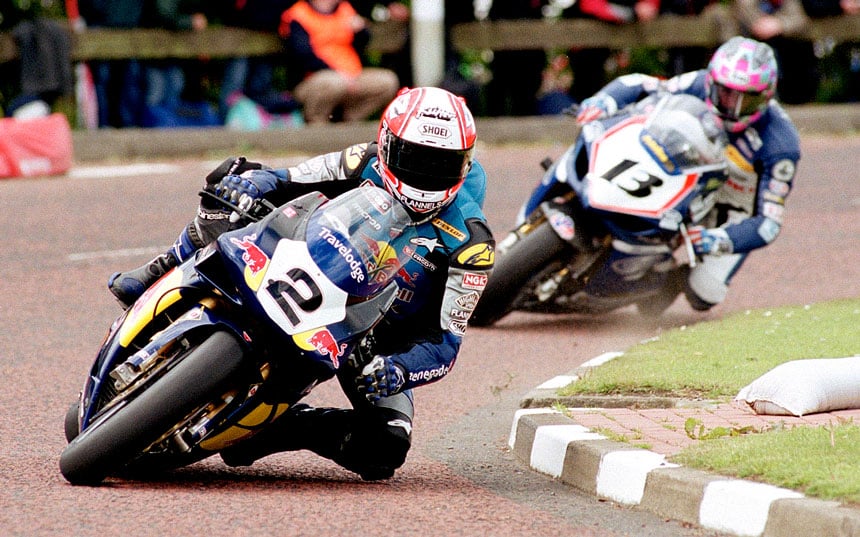 Michael Rutter makes history in 2005
Michael Rutter makes history in 20052005
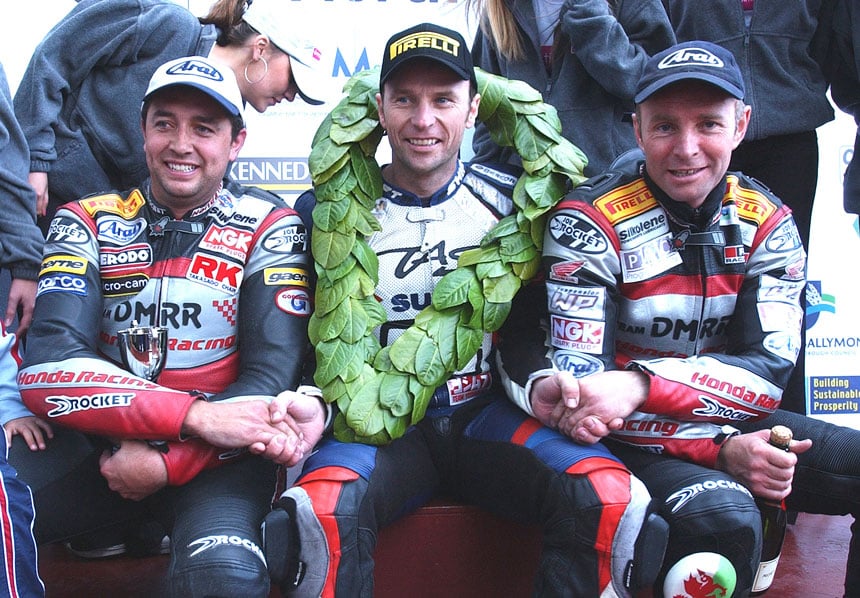 Ian Lougher, winner of the Superstock race
Ian Lougher, winner of the Superstock race2006
2007
2008
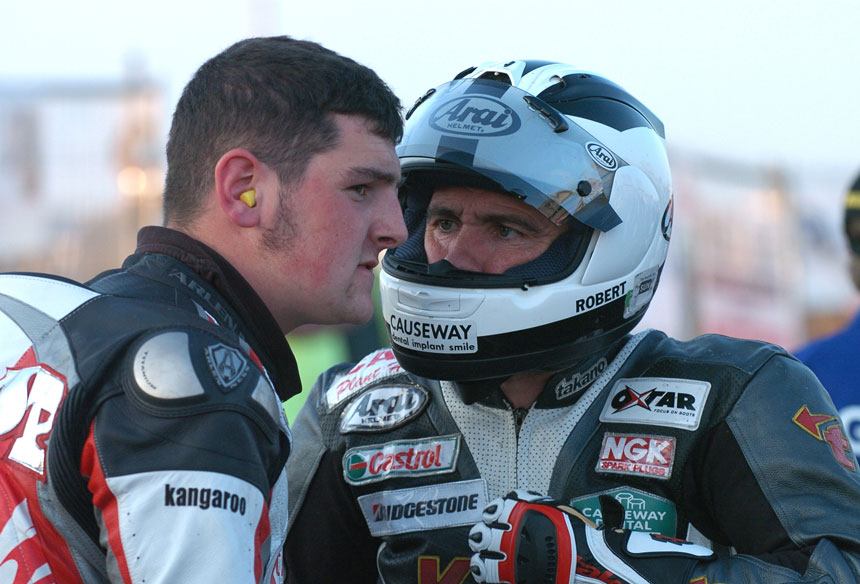 Fatherly advise from Robert to Michael Dunlop in 2008
Fatherly advise from Robert to Michael Dunlop in 20082009
Excerpt taken from ‘The Power and the Glory’
Kindly provided by Author – Alistair McCook
The morning of the 20th April 1929 broke brilliantly. As the minutes ticked towards the appointed starting time, it was a perfect day in early summer. At the starting point at Magherabouy, almost exactly where the chicane is now situated on the course, a grandstand had been erected on the right hand side of the road. Directly opposite were the pits, where riders would stop to refuel throughout the 200 mile race. A marquee selling refreshments was erected nearby, and a brass band entertained the gathering crowds. And here began what is today’s largest outdoor sporting event.
As the sun shone down from a cloudless, blue sky, the Derry and District Motor Club’s long standing dream of running a high profile, international motor cycle road race finally became reality. The now world renowned North West 200 was first held seventy eight years ago as a handicap event over a stunning 11 mile triangle circuit, connecting Coleraine, Portrush and Portstewart.
At one o’clock – the starting time of the first North West 200 race – three riders pushed their machines into life from the starting point at Magherabuoy, and began the sloping, downhill run into Portrush. They were A McIntyre, (Abingdon KD), R B Patterson, (348cc O.E.C), and RM Osbourne (348cc Raleigh), the limit men, the riders who had been given the most generous handicap. For most of the next hour the reminder of the thirty-one starters started off in intervals of varying length.
The North West 200 was a long time in planning. By early 1929, the Derry and District Motor Club’s plans to organise and stage an event of International importance were well on track, albeit somewhat changed from what had originally been envisaged. The Club was confident that the North West 200 would prove highly attractive to manufacturers, giving them the opportunity of an early season shakedown of machinery, this in turn would draw star names and works entries could be guaranteed straight away.
North West 200 organisers broke away from tradition: 200 miles was not a distance commonly used in 1929, and expert opinion advised that a race ran over 100 miles would be more popular. In retrospect, the decision to run the event over the longer distance made it a rigorous pre-TT test of reliability that factory teams couldn’t ignore. The decision to run the event on a handicap basis was also at odds with established formats at the time as the Continental Grands Prix and the Isle of Man TT races were all raced on a scratch basis.


